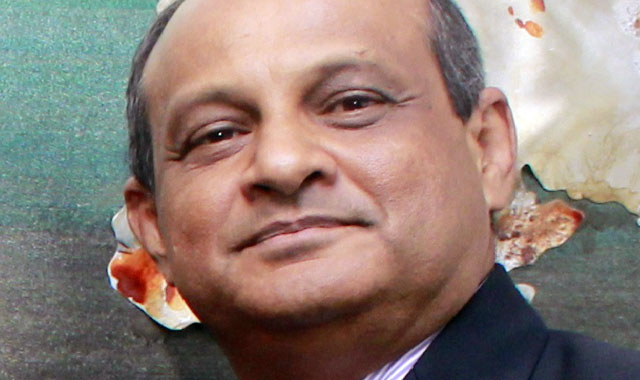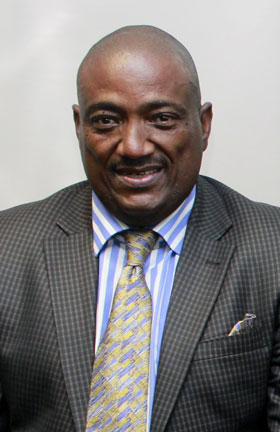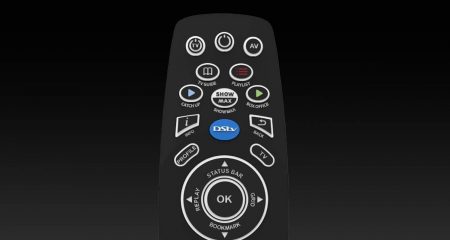
A dispute over an empowerment deal that has soured could cost South Africa a massive boost to the local set-top box manufacturing sector.
At the heart of the dispute is the relationship that the National Association of Manufacturers in Electronic Components (Namec), an industry body for small, medium and micro enterprises in the electronic manufacturing sector, has entered into with pay-television operator MultiChoice and the Chinese manufacturer Skyworth Digital to supply a potential 15m boxes over the next three years.
An industry expert said that a likely price for the manufactured boxes would be about R350, valuing the deal at roughly R5,3bn.
This deal is mostly to supply boxes to MultiChoice Africa for the GOtv platform it has launched all over Africa as part of the digital migration process on the continent.
E-mail correspondence between Namec office bearers suggest that it was seen as a precursor to the government tender for 5m subsidised boxes for South Africa’s own digital migration.
The dispute appears to have split Namec into two camps, with each side suspending or annulling the others’ leadership positions in the organisation and claiming the right to speak on behalf of Namec.
In April this year, Namec announced that it was partnering with Skyworth Digital, a subsidiary of the Skyworth Group, and was planning to build an 8 000sq m factory to manufacture up to 3m boxes a year. The factory was expected initially to employ 250 employees, but could, once scaled up, employ as many as 3 000.
Members of Namec are now accusing Namec chairmen Keith Thabo and Vijay Panday, the chief executive of Namec Electronics Manufacturing, of being “empowerment raiders” and hijacking the empowerment deal for their own benefit.
But they have robustly denied this, claiming those making the allegations are not members of Namec.
Key to the dispute is the shareholding structure of Namec Electronics Manufacturing and Namec Technologies SADC.
The latter is a subsidiary of the former, in which the Skyworth subsidiary Smart Choice bought a 51% stake for US$51m earlier this year.
Namec Electronics Manufacturing, MultiChoice and Skyworth signed a memorandum of understanding on 13 December last year for Namec Technologies SADC to supply set-top boxes to the broadcaster.
Some Namec members claim that Namec Electronics Manufacturing was supposed to be owned by Namec Holdings, but say they have discovered that Panday and Thabo in fact own it, each holding a 50% stake.
The Mail & Guardian has seen e-mails between Panday, Thabo and other stakeholders that appear to support this claim. In an e-mail dated 5 May, Panday writes to a MultiChoice staffer: “Keith Thabo, chairman, and I own Namec, we are the JV BBBEE [joint-venture broad-based black economic empowerment] partners of Skyworth here in South Africa.”
The allegations about the pair were made in an open letter sent to minister of telecommunications and postal services Siyabonga Cwele, the SABC and Namec’s members and social partners.
The Namec members claim they were “purposely and deliberately misled and left in the dark” about the existence of a deal and the “negative impact” it would have on job security and job creation in the sector.
“The devastating fact is that the transaction that was intended to implement the original Namec mandate [to empower emerging electronic components manufacturers and small black businesses] to revitalise South Africa’s ailing electronics manufacturing sector has been diverted into the pockets of these individuals and their business associates,” reads the letter.
The Namec members who met on 23 July to examine the evidence against Thabo and Panday claim to have formed a national task team to manage Namec’s affairs and claim to have annulled Thabo’s position as Namec president and suspended Panday’s membership.
This was communicated in the open letter, which was signed by the Namec secretary general, Adil Nchabeleng.

Thabo held his own separate meeting on 30 July. A statement following that meeting, which he gave to the M&G, states that Professor Kunene, the deputy secretary general of Namec, has been suspended and that Nchabeleng is not a Namec member or office bearer. It also states that Kunene and Nchabeleng are not authorised to make statements on behalf of Namec.
“Namec does not and will never tolerate acts by its office bearers or its members which are designed to cause any South African jobs to be lost and for contracts for the manufacture of South African set-top boxes to be placed offshore,” says the letter supplied by Thabo.
“The structure of the confidential commercial arrangements by Namec members referred to in the letter published by Kunene, Sibeko and Nchabeleng has been designed to and will have the effect of creating sustainable South African jobs in the manufacturing sector.
“The allegation regarding the disposal of an equity stake in a joint venture for $51m is false and Namec has been advised that its members will institute action against the responsible persons for defamation.”
MultiChoice told the M&G it is still in negotiations with Namec for the supply of decoders.
“We are not privy to the details of the agreement between Skyworth and Namec,” MultiChoice said in a prepared statement.
The M&G has seen an e-mail conversation from June in which Panday, Thabo and Skyworth staff discuss work permits for Chinese engineers from Skyworth, whom MultiChoice want in their office for support.
MultiChoice’s statement said that the dispute between Namec stakeholders has been brought to its attention and it understands that Namec is in the process of resolving it.
“MultiChoice has made it clear to all parties that it will not conclude a deal unless Namec at large is a beneficiary,” it reads.“The allegation regarding the disposal of an equity stake in a joint venture for $51m is false.”
Unconditional love from MultiChoice
Namec Electronics Manufacturing, MultiChoice and Skyworth signed a memorandum of understanding on 13 December last year for Namec Technologies to supply set-top boxes to the broadcaster — about a week before MultiChoice, the SABC and Namec called a joint press conference to voice their opposition to the decision on conditional access in set-top boxes by the then minister of communications, Yunus Carrim.
Some Namec members have suggested that the only reason MultiChoice was interested in doing a deal was because of Namec’s position on conditional access. The dispute centres on whether the set-top boxes should have access security to regulate how subscribers access the television channels. This would allow new operators to offer pay-TV services.
Critics argue that MultiChoice’s opposition to conditional access is about maintaining its dominance in the pay-TV market.
The M&G has seen e-mail correspondence between Thabo and Panday in which they discuss conditional access.
In one e-mail, dated 16 June this year, Panday writes to Thabo asking him to get MultiChoice to give them more protection in terms of set-top box orders.
“We put a lot of time, effort, lost face with govt and DTI [department of trade and industry], fighting the CA [conditional access] battle,” writes Panday. “A year from now when all is over, they can allocate the forecast to anyone.”
In another e-mail, dated 25 May, Panday thanks some Namec staffers for their support in the “recent fight with Carrim”. “He is officially out,” says Panday. “We will have an easier run. She [Faith Muthambi, the new minister] is a nice person and supports Namec.”
On whether the Namec deal was tied to its support of MultiChoice in the conditional access standard debate, the broadcaster said the agreement was not related to set-top box control.
It said its agreement with Namec is part of its strategy to support black economic empowerment. — (c) 2014 Mail & Guardian
- Visit the Mail & Guardian Online, the smart news source




